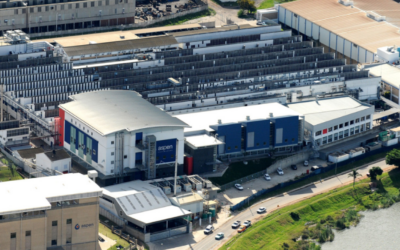As pressure continues to mount for local food producers, businesses operating in the sector need to think differently and implement innovative strategies in order to improve efficiencies, boost profits and survive the current economic headwinds.
This is according to Cala van der Westhuizen, Head of Sales at EP Refrigeration – a division of Energy Partners and part of the PSG group of companies – who points to the example of fruit packing company, Afrupro.
Due to the industry’s required high standards of fruit quality, Afrupro – who packs and cools avocados for the overseas market – needs to predict and control the ripening process down to the exact day, something which can be achieved through a reliable and precisely controlled cold chain. “This can be especially important for produce like avocados that start to soften as soon as they have been picked. It is vital to ensure that the fruit arrives at its destination in the right condition, otherwise the supplier risks losing the sale,” he says.
“For a company that is reliant on an accurately controlled cold chain to deliver a quality product for export, it made sense to partner with a refrigeration expert who takes overall responsibility for the cooling process of the product from start to finish – a model we refer to as cooling as a service (CaaS),” he says.
Van der Westhuizen points to CaaS as a growing global trend which has become one of the most viable ways for food producers and manufacturers to save on operational costs. “In addition, it is fast becoming one of the most reliable ways to cut down on production losses.”
He explains that, in a CaaS scenario, a service provider owns part or all of the client’s refrigeration infrastructure, and sells the refrigeration produced at a guaranteed cost. As the service provider assumes all of the maintenance responsibility and risk related to the refrigeration plant, operations that rely on accurately controlled cooling are often better served by a CaaS contract than by managing their cooling infrastructure in-house.
In the case of Afrupro, Energy Partners installed a fully outsourced solution at their facility in the Limpopo Province, financed through a CaaS agreement – a partnership that enabled Afrupro to reduce the energy cost of the site’s cold rooms by 20% and saved the company close to R4 million in capital expenditure.
However, Van der Westhuizen clarifies that the cost saving is just one part of the picture. “More important is the fact that product losses due to errors or breakdown in the cooling system can be significantly reduced. With a CaaS contract, the dedicated service provider monitors the cooling system’s performance in real time, 24 hours of the day – which is something that the vast majority of industrial operations are not able to do. It enables the service provider to predict and address breakdowns long before they happen, and also ensures that cooling can be controlled with pinpoint accuracy. The cost savings and benefits that this has to consistent production are substantial.”
With the pressure on companies to restore their profit margins in light of the nationwide lockdown and harsh economic environment, Van der Westhuizen says that the outsourcing of cooling makes the most sense for refrigeration-heavy businesses, and will allow South Africa’s fresh produce sector to truly compete on a global market.




